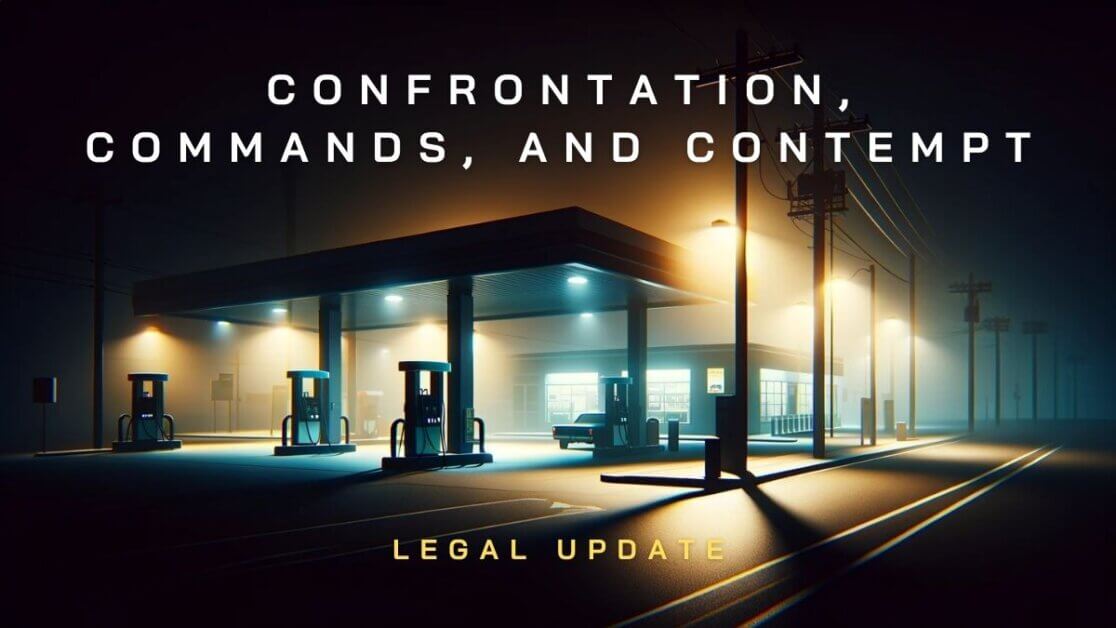In United States v. Ambriz-Villa, the Seventh Circuit Court dealt with a case involving a traffic stop and consent to search a suspect’s vehicle based on suspicion of drug trafficking. The suspect argued that their consent to search the vehicle was not voluntary. To evaluate the voluntariness of consent, the court considers various factors, such as the person’s age, intelligence, and education, whether they were advised of their constitutional rights, the length of their detention before giving consent, whether the consent was immediate or prompted by repeated requests, whether physical coercion was used, and whether the individual was in police custody when giving consent.
Raul Ambriz-Villa drove past Illinois State Trooper John Payton on I-57, where Trooper Payton was parked in his patrol car. Trooper Payton, who is specially trained in drug interception, made several observations about Ambriz-Villa’s car which led him to suspect potential drug trafficking activity. When Ambriz-Villa’s car crossed the solid white line on the shoulder of the road, Trooper Payton executed a pretextual traffic stop. As was his custom, Trooper Payton asked Ambriz-Villa to sit in the front seat of the patrol car as a safety measure for the duration of the traffic stop. While processing a warning for the traffic violation, Trooper Payton asked Ambriz-Villa about his background and purpose for traveling. Ambriz-Villa said he owned a tire shop in Nebraska and was driving to Georgia for his nephew’s birthday, and that the rest of his family had flown down for the celebration. When asked why he chose to drive alone, Ambriz-Villa “floundered nonresponsive,” and then when asked again, stated that it was because he liked to drive. Still processing the warning, Trooper Payton asked more questions. Throughout this conversation, Ambriz-Villa’s unusual responses and excessively nervous and evasive reactions raised Trooper Payton’s suspicion that Ambriz-Villa was involved in criminal activity.
After processing the warning, Trooper Payton handed it to Ambriz-Villa, who then opened the door and began to exit the patrol car. When Ambriz-Villa was “halfway out the door,” Trooper Payton asked, “Do you mind if I ask you a few more questions?” Ambriz-Villa agreed, and Trooper Payton then asked whether he was involved in any drug activity, which Ambriz-Villa denied. Trooper Payton then asked Ambriz-Villa for consent to search his vehicle, which the driver agreed to. Trooper Payton repeated his question “for clarification,” and Ambriz-Villa again confirmed that he consented to the search of his car. The search uncovered thirteen packages of methamphetamine, amounting to roughly one kilogram per package.
The government charged Ambriz-Villa with possession with intent to distribute at least 500 grams of methamphetamine. Ambriz-Villa filed a motion to suppress the drugs, which the district court denied. On appeal, Ambriz-Villa conceded that Trooper Payton was permitted to stop him based on the traffic violation, but argued that the scope and manner of the stop were unreasonable under the Fourth Amendment. The basis for his argument relied on the fact that Trooper Payton asked him repetitive and persistent questions not related to the reasons for the initial stop.
The Seventh Circuit Court of Appeals disagreed with Ambriz-Villa’s argument that his Fourth Amendment rights were violated. The court held that an officer’s questioning does not have to be related to the reason for the traffic stop, as long as it does not prolong the duration of the stop. Additionally, the court stated that it is irrelevant whether the individual is in the officer’s patrol car during questioning, as officers are permitted to ask individuals to sit in their patrol cars while issuing citations. In this case, the court found that the questioning of Ambriz-Villa by the Trooper did not prolong the duration of the traffic stop, and therefore, his Fourth Amendment rights were not violated.
Ambriz-Villa also argued that his consent to search was not voluntary. He claimed that when he was exiting the patrol car to return to his car with the warning violation in his possession, no reasonable person would have felt free to ignore Trooper Payton’s question and simply walk away. The court considered the totality of the circumstances and concluded that Ambriz-Villa voluntarily provided his consent to a search of the vehicle. The court noted that it was undisputed that Trooper Payton had handed Ambriz-Villa the warning ticket and that Ambriz-Villa was exiting the police car at the time the consent to search was sought. Additionally, the court stated that the stop occurred on a public highway during the day, Trooper Payton showed no weapons and no physical force was used, and Trooper Payton’s language and tone were limited to a series of targeted questions and confirmed whether a search would be allowed.
Takeaways
In United States v. Ambriz-Villa, the Seventh Circuit Court dealt with a case involving a traffic stop and consent to search a suspect’s vehicle based on suspicion of drug trafficking. The suspect argued that their consent to search the vehicle was not voluntary. The court found that the trooper’s actions during the stop were appropriate, as he kept himself and the suspect calm and safe by allowing him to sit in his patrol vehicle, the stop was not prolonged, and questioning was kept casual. The court also found that the suspect voluntarily provided consent to search the vehicle. The court determined that once probable cause was established, the trooper’s line of questioning could switch gears from the traffic stop and in this case, the suspect was clearly hiding something and the trooper followed all the right steps to figure out what it was.
United States v. Ambriz-Villa, 28 F.4th 786 (7th Cir. 2022)



